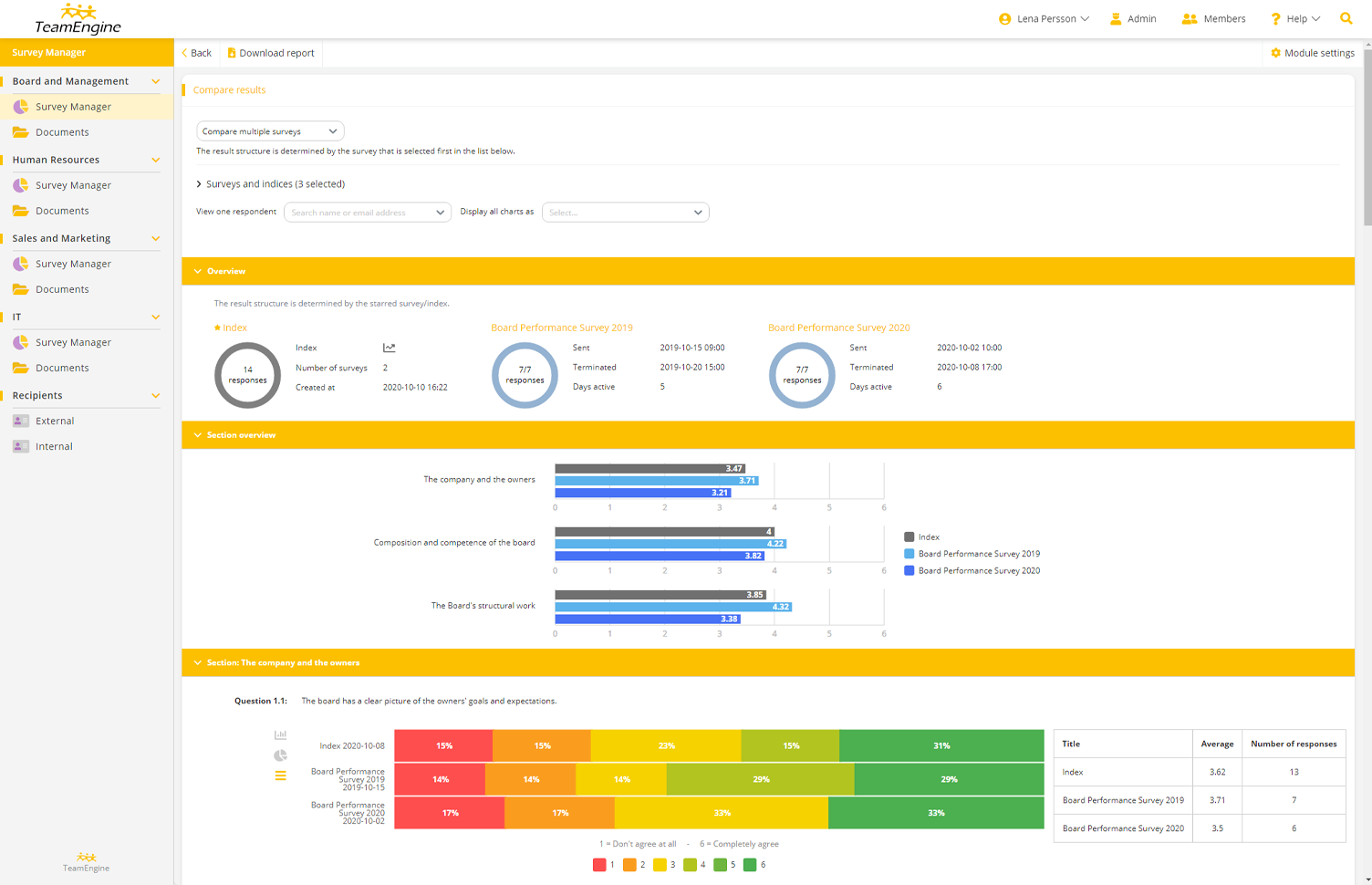Measure and optimise your board composition
Continuous skill assessments might seem like a daunting and time-consuming undertaking, but it is important to regularly evaluate your board composition to make sure that the appropriate skills and experiences are represented. Strong board succession planning begins with an evaluation of the board’s current capabilities and identification of any gaps in skills or backgrounds. Thankfully, there is a secure and easy way to gather the data necessary to optimise your board composition.
Which skills are relevant for your board?
There is no one-size-fits-all solution when it comes to board composition. The need for various skills and experiences will depend on the industry, as well as the size and maturity of the organisation. That said, there are some general guidelines that are worth considering. Ideally, a board should be composed of people with relevant knowledge of the business that is being conducted, along with some general areas of governance expertise, such as financial reporting. The board members’ individual skill sets should complement each other and the board should be able to effectively navigate issues that align with the organisation’s long-term strategy.
A strong board should also include members of diverse backgrounds and perspectives as this is helpful both for effective governance and for creating positive values in the organisation. Board diversity is becoming increasingly relevant for publicly traded companies, as power players on the stock market are starting to push for more inclusive boardrooms. For instance, Nasdaq has implemented a board diversity rule that will require all companies listed on their U.S. exchange to annually disclose data to assess whether their boards are meeting certain diversity targets.
It is also worth noting that the needs of the organisation and the board will likely change over time. As companies implement new technologies or enter into new markets, new skills may need to be introduced in the boardroom. For example, if a company wants to get listed on the stock exchange or establish itself internationally, it is crucial to have multicultural competence on the board in order to accurately predict the demands of the new markets.
Measure the board’s skill levels
How do you make sure that your board has the right mix of skills to meet current and future goals? According to PwC, consistent skill assessments and forecasting is the way to ensure strategic succession planning. Similarly, the National Governance Association recommends continuous review and board refreshment to ensure that a balance of skills is maintained. Strategic skill assessments can help the board understand what skills they have, address shortages and forecast future needs. This is usually done by measuring all board members’ skill sets and logging them in a so-called ‘skills matrix’.
Building a skills matrix does not have to be difficult nor time-consuming. Thanks to digital survey tools, collecting data for skill assessments has never been easier. With TeamEngine Survey Manager, you can quickly create questionnaires and customise the questions to suit your needs. This allows you to survey board members about the specific skills needed on the board, whether it be international business, marketing, sales, law, finance, accounting, IT, risk management, sustainability, or industry knowledge. Let your board members identify which skills are currently represented on the board in order to find out if any relevant skills are missing.

Incorporate results and refresh the board
Once the survey is completed, the results will form the basis of your skills matrix, which will be an invaluable tool in optimising the board composition. Having a skills matrix enables the nominating committee to identify which specific skills the board should acquire or develop internally. When equipped with this data, it is easier to create an accurate pipeline for recruitments when vacancies arise due to tenure or other reasons. This way, the board can proactively identify suitable candidates and facilitate smooth transitions.
In order to maintain an appropriate balance of skills, these assessments should be performed in regular intervals to keep the skills matrix up to date. And there is no need to stop there. Survey Manager can be used to conduct any type of survey, including board performance evaluations, CEO evaluations, employee evaluations or quick pulse surveys. Continuous evaluations of the board composition and individual performances will provide a clear overview of the board’s overall effectiveness. The more data is gathered, the easier it gets to compare results and identify trends over months, years, or even decades. Lather, rinse, repeat.
Curious to see how your board can benefit from using Survey Manager?
Book a personal demo or start a free trial.